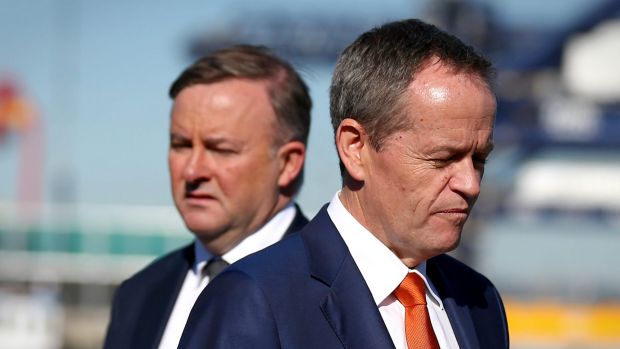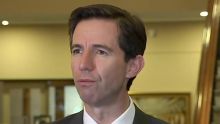Labor's Anthony Albanese has distanced himself from Bill Shorten's response to the 2017 budget, arguing the federal opposition should have claimed victory after the Coalition's "ideological surrender".
More National News Videos
Shorten sets Labor's agenda
The battle lines are drawn with Labor leader Bill Shorten revealing what he will and won't support in the budget, setting up a fight with the government.
In a speech to the Transport Workers Union in Perth, Mr Albanese - who was narrowly defeated by Mr Shorten in the 2013 leadership contest and who still has significant support in the caucus and among party rank-and-file - has set out an alternative budget response suggesting a different narrative for Labor.
"Budget 2017 was an overwhelming victory for the Australian Labor Party and the broader labour movement," Mr Albanese said.
"It was the budget of ideological surrender.
"We in the Labor Party and the broader labour movement should celebrate our victories."
In contrast, Mr Shorten launched a savage attack on Treasurer Scott Morrison's second budget in his formal response, calling it an "admission of guilt" and fundamentally unfair, and rejecting suggestions it was a "Labor lite" document.
The Labor leader promised to reintroduce the 2 per cent deficit levy and only to back an increase in the Medicare levy for people earning more than $87,000 a year.

That would, in effect, set the top tax rate at 49.5 per cent under a future Labor government - a move that drew stinging criticism from former prime minister Paul Keating, and caused some internal disquiet within the ALP.
Fairfax Media has spoken to several Labor MPs who were surprised by the tactics Mr Shorten adopted in his budget response.
Broadly speaking those MPs, who asked not to be named, believe Mr Shorten made a mistake by opposing a rise in the Medicare levy for all income earners and that he moved too far to the left of the political spectrum in his reply.
Those MPs fear that, like former prime minister Tony Abbott, Mr Shorten is in danger of falling into the trap of ruling out measures proposed by the current government that could help repair the budget.
"We have to think long and hard about our journey to the next election. First we have to win the election, but then we also have to govern afterwards," one said.
While Labor retained a strong 53-47 lead in the two-party preferred vote in the latest Fairfax-Ipsos poll, the Coalition's primary vote rose four points, the budget was judged to be fair, and the hike in the Medicare levy was backed strongly by voters.
Mr Albanese is a member of the shadow cabinet, which met and discussed the budget reply speech, but key decisions on policies Labor would support or oppose were taken by the smaller leadership group.
Like Mr Shorten, Mr Albanese argued the Coalition's budget embraced Labor policies such as needs-based school funding, the principle of universal health care, the need to invest in roads, ports and rail, and the National Disability Insurance Scheme.
" But the bad news is that while the Coalition has raised the ideological white flag, their rhetorical conversions have not come with investment," Mr Albanese said.
" The way forward for Labor is to accept their [the Coalition's] rhetorical conversion and triple our pressure for investment, while continuing to argue the case for further progressive reform."
The move to differentiate himself from the Labor leader's formal response to the budget comes a week after Mr Albanese said an "Australians first" job ad, starring Mr Shorten and a host of white Australians, was a "shocker".
The ad was quickly pulled amid suggestions of racism, and Mr Shorten blamed "poor oversight" for the ad.
Mr Albanese's speech also addressed the future of work at a time when automation, robots and driverless cars are causing major disruption in traditional industries.
" Change has no conscience. Change can improve our lives. It can free us of certain kinds of labour. It can make life easier in any number of ways. But change is a bit like the free market. If you leave it to its own devices, people can get hurt," he said.
"That is where the state needs to come in. We need to accept that we can't stop change. But we need to manage change so that it serves people, rather than victimising them, particularly working people."
To help tackle that change and protect working people, he argued for greater education and training and a focus on life-long learning.

















